With Xavier Giannoli’s exquisite Marguerite, the top echelon of my potential Ten Best list is getting crowded. I had missed this film’s very existence until Friday, when the Grail Moviehouse announced it would be opening this week — and thankfully set me up to watch it just in time. This is a deeply wonderful film on any number of levels. The story may sound familiar to you because it is based on the same woman as Stephen Frears’ more publicized Florence Foster Jenkins with Meryl Streep and Hugh Grant, which is coming our way sometime in August. I haven’t seen the Frears film, but I have the impression it is more of a biopic and more overtly comic. Giannoli has instead taken the basics — a wealthy woman and patron of the arts who can’t sing a note but insists on doing so anyway — transported them to Paris in 1920, crafted his own story, and created something at once comic and surprisingly thoughtful — a work of great delicacy and generosity.
In Giannoli’s film, the character has been rechristened Marguerite Dumont — and the reference to the grand dame foil of Marx Brothers fame is hardly accidental. When her husband, Georges (André Marcon), manages to carefully arrive at the very end of her recital by faking car trouble, the allusion to Groucho circling the block in a horse-drawn cab in order not to hear the opera in A Night at the Opera is clear. Catherine Frot plays the film’s Marguerite, and while she is as absurd as our lady of the Marxes, she’s also tragic in her delusion that she can sing. (An early exchange on her screechy singing runs, “Does she always sing like that?” answered by, “No, she’s come a long way.”) At the same time, there’s a magical, almost luminous, quality to Frot’s portrayal. And she’s strangely admirable — rather like the Tim Burton version of shlock movie maker Ed Wood — in her insistence on pursuing her dream, despite a complete lack of talent. You may laugh at her — or wince — at first. By the end, chances are you will love her.
When the film opens, she’s about to give a performance for her music club — a group of society music lovers who tolerate her singing because of her generosity to the arts. So long as her fantasy is limited to this world — and dressing up as every opera heroine known to music and being photographed by her inscrutable butler Madelbos (Denis Mpunga) — this is safe enough.
But the world intrudes in the form of critic Lucien Beaumont (Sylvain Dieuaide — who bears more than a passing resemblance to out-of-makeup Charlie Chaplin) and his anarchist artist friend Kyrill Von Priest (Aubrey Fenoy). They conspire to foist her on an unsuspecting public. Why? It’s partly a lark — dressed in raves about her (undoubted) oblivious authenticity — but for Lucien, at least, it becomes something more. For Marguerite, it adds a mission to her life, one that may or may not be grounded in getting her husband’s attention.
Soon the film is full of scandals, plot twists, a flamboyant washed-up gay opera singer (Michel Fau) blackmailed into tutoring her — there’s even a bearded lady fortuneteller (Sophia Leboutte) in her entourage. But at the center of it all is La Dumont. Yet what makes it work so completely is the astonishing complexity of all the relationships. No one is quite what he or she seems. Those with seemingly admirable motives have another side. Those who appear mercenary or cruel may not be so easily read. Late in the film, Georges Dumont tells Beaumont, “I don’t like you very much,” and Beaumont responds, “Neither do I.” And what of Marguerite herself? She remains slightly enigmatic, more so when reality and fantasy are blurred after a very brief moment of glory.
The beauty and greatness of it all is that Giannoli has given Mme. Dumont a cinematic grand opera for her story. She is both victim (as much of herself as anyone) and heroine, a figure of not unkind fun and a larger-than-life tragedienne. Marguerite Dumont was clearly no opera star, but she was magnificently operatic all the same. This is what the film — and Catherine Frot — gives her and us, and it’s pretty remarkable. Rated R for brief graphic nudity and sexual content, and a scene of drug use.



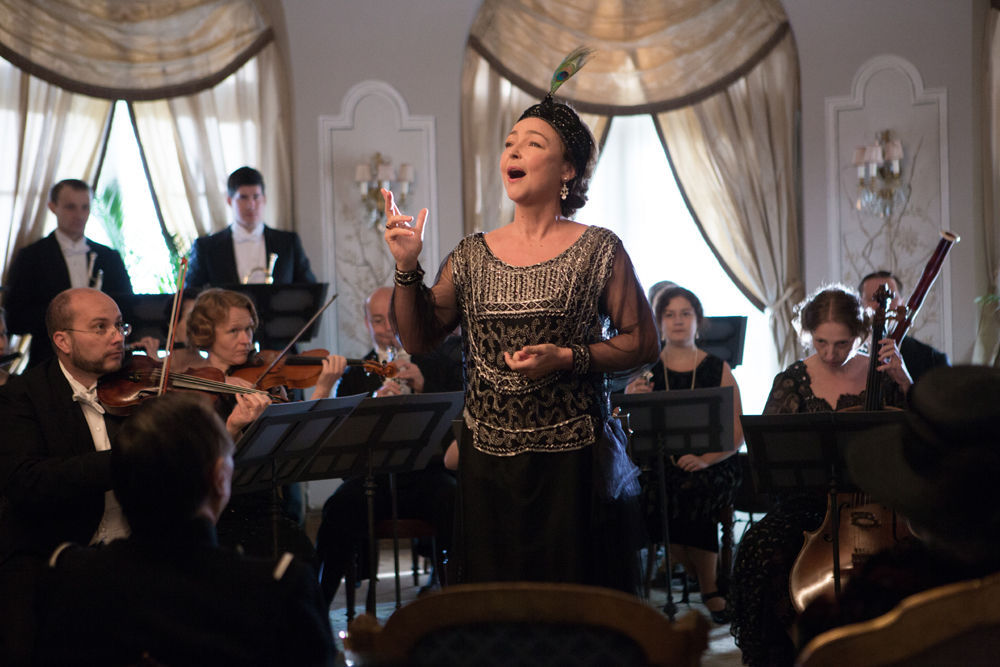
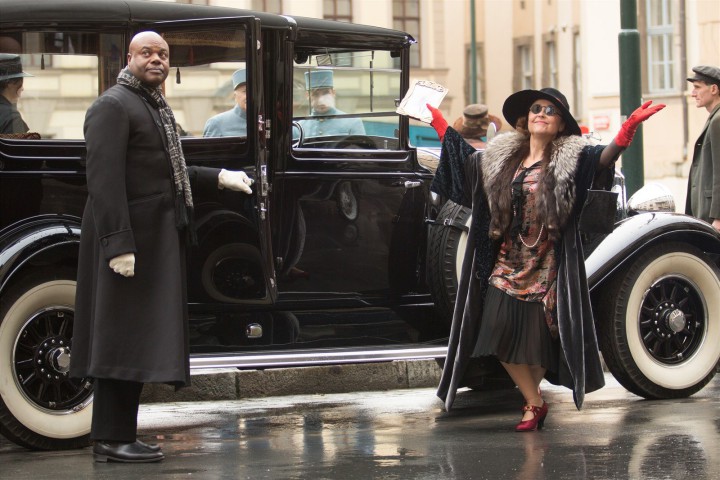
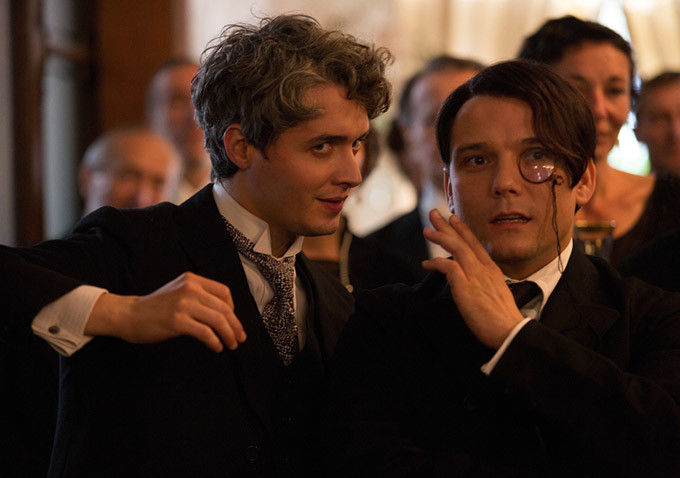
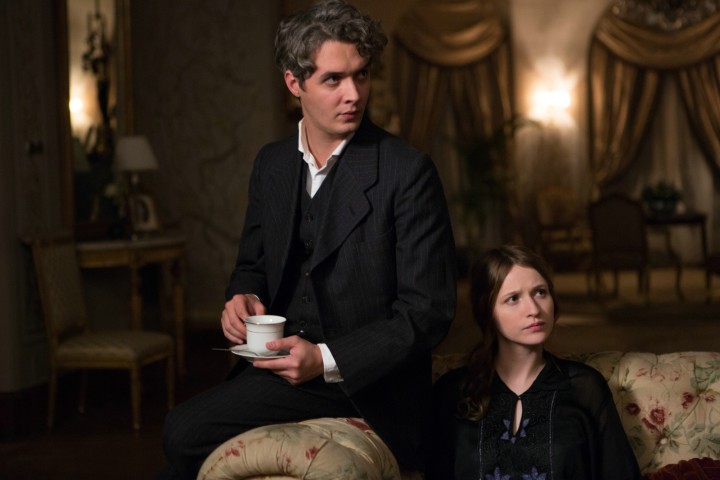

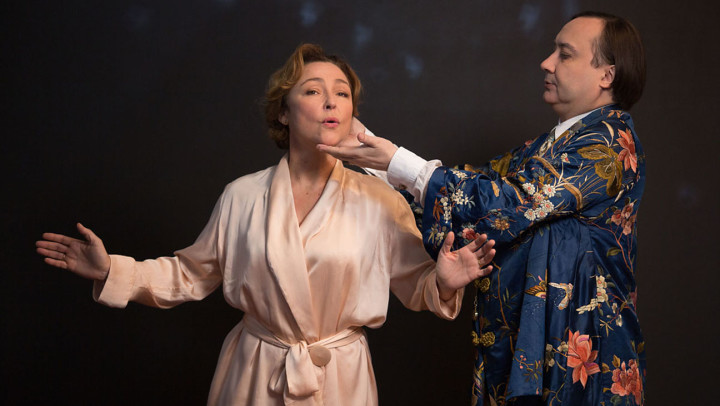
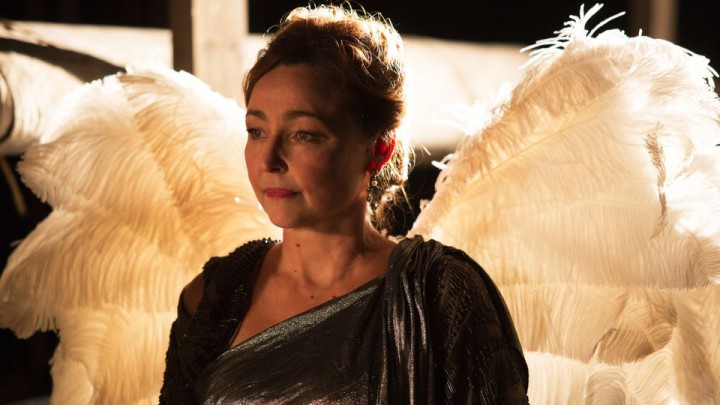
The Cary Theater (in Cary, of course) is showing this at one performance only – Thursday, June 23rd at 9pm. (Such is the nature [or demand?] of art-house films in the Triangle area – they are few and far between now that The Colony in Raleigh is gone.) I’ll be there.